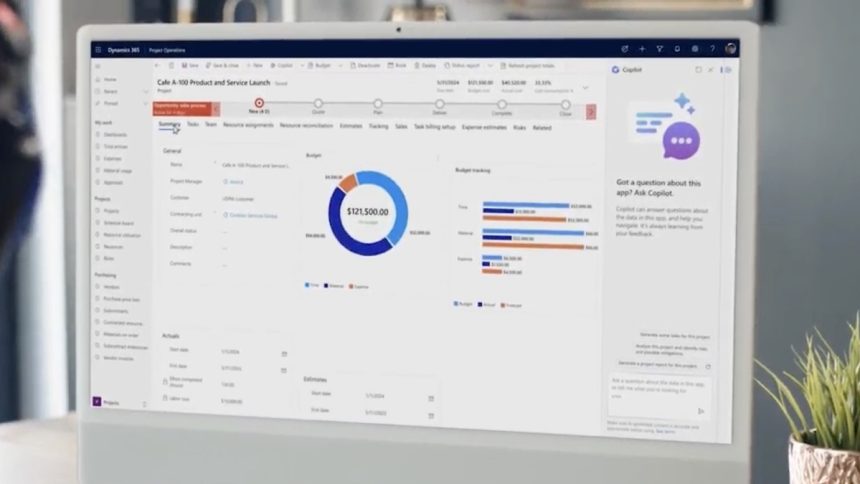In the dynamic world of modern business, companies of all sizes strive to streamline operations, boost efficiency, and secure a competitive advantage. Enterprise Resource Planning (ERP) software has emerged as a powerful solution to meet these demands. Microsoft, a pioneer in business technology, provides a suite of ERP solutions tailored to help organizations refine their processes and foster growth. This article will delve into the advantages of adopting Microsoft ERP solutions and their transformative impact on businesses across diverse industries.
Understanding ERP and Its Importance
Enterprise Resource Planning (ERP) is an integrated software solution that unifies and manages essential business processes such as finance, human resources, supply chain, manufacturing, and customer relationship management. By centralizing data and automating workflows, ERP systems empower businesses to make informed decisions, lower operational costs, and enhance overall performance.
For small businesses, in particular, ERP software for small business can be a game-changer. It provides a scalable solution that can grow with the company, offering sophisticated functionality without the hefty price tag of enterprise-level systems. Microsoft’s ERP offerings cater to businesses of all sizes, making them an attractive option for small and medium-sized enterprises (SMEs) looking to enhance their operations.
Implementing Microsoft ERP solutions can be a transformative step for businesses looking to optimize their operations and drive growth. Whether you’re a small business seeking ERP software for a small business or a large enterprise requiring advanced capabilities, Microsoft’s ERP ecosystem offers scalable, integrated solutions to meet your needs.
Microsoft’s ERP Ecosystem
Microsoft offers two primary ERP solutions: Dynamics 365 Business Central and Dynamics 365 Finance and Operations. These platforms are designed to cater to different business needs and scales:
1. Dynamics 365 Business Central: Tailored for small to medium-sized businesses, this cloud-based ERP solution combines financial management, supply chain, sales, and customer service functionalities into a single, integrated system. It’s particularly well-suited as an ERP software for small business, offering a user-friendly interface and seamless integration with other Microsoft products like Office 365.
2. Dynamics 365 Finance and Operations is designed for large enterprises, offering sophisticated financial management, supply chain optimization, and manufacturing capabilities. This solution delivers comprehensive features to support complex business operations and ensures scalability on a global scale.
Key Benefits of Microsoft ERP Solutions
Implementing a Microsoft ERP solution can yield numerous benefits for businesses:
1. Enhanced Productivity: By automating routine tasks and centralizing data, employees can focus on higher-value activities, leading to increased productivity across the organization.
2. Improved Decision-Making: Real-time data and analytics provide managers with actionable insights, enabling faster and more informed decision-making.
3. Scalability: Microsoft’s cloud-based ERP solutions can easily scale as your business grows, ensuring that your technology infrastructure keeps pace with your evolving needs.
4. Seamless Integration: Microsoft ERP systems integrate smoothly with other Microsoft products and third-party applications, creating a cohesive ecosystem for your business operations.
5. Cost Efficiency: By streamlining processes and reducing manual work, businesses can significantly cut operational costs and improve their bottom line.
6. Enhanced Customer Experience: With integrated customer relationship management (CRM) capabilities, businesses can provide better service and build stronger customer relationships.
Implementation Strategies for Success
The advantages of Microsoft ERP solutions are evident, yet achieving successful implementation demands meticulous planning and execution. Consider these key strategies to facilitate a seamless transition:
1. Define Clear Objectives: Before implementation, clearly outline your business goals and how the ERP system will help achieve them.
2. Engage Stakeholders: Involve key personnel from different departments in the planning and implementation process to ensure buy-in and address specific needs.
3. Data Migration and Cleansing: Carefully plan the migration of existing data to the new system, ensuring data accuracy and consistency.
4. Customization and Configuration: Tailor the ERP solution to fit your specific business processes while minimizing unnecessary customizations that could complicate future updates.
5. User Training: Invest in comprehensive training programs to ensure that employees can effectively use the new system and maximize its benefits.
6. Phased Implementation: Consider a phased approach to implementation, starting with core modules and gradually expanding to other areas of the business.
7. Continuous Improvement: Regularly review and optimize your ERP system to ensure it continues to meet your evolving business needs.
By carefully planning the implementation process and leveraging the full potential of these powerful tools, businesses can streamline their operations, improve decision-making, and gain a competitive advantage in today’s dynamic marketplace. As technology continues to evolve, Microsoft’s commitment to innovation ensures that its ERP solutions will remain at the forefront of business technology, helping organizations of all sizes thrive in the digital age.
As we look to the future, ERP systems, especially those from Microsoft, are set to achieve even more remarkable advancements. With the integration of artificial intelligence, machine learning, and Internet of Things (IoT) capabilities, these systems will become even more predictive, autonomous, and value-driven. Businesses that embrace these evolving ERP solutions will be well-positioned to adapt to changing market conditions, meet emerging customer needs, and drive innovation within their industries. As we move forward, the role of ERP in business strategy will only grow, making it an essential investment for companies aiming to build resilience and achieve long-term success in an increasingly digital and competitive global economy.
Lynn Martelli is an editor at Readability. She received her MFA in Creative Writing from Antioch University and has worked as an editor for over 10 years. Lynn has edited a wide variety of books, including fiction, non-fiction, memoirs, and more. In her free time, Lynn enjoys reading, writing, and spending time with her family and friends.















